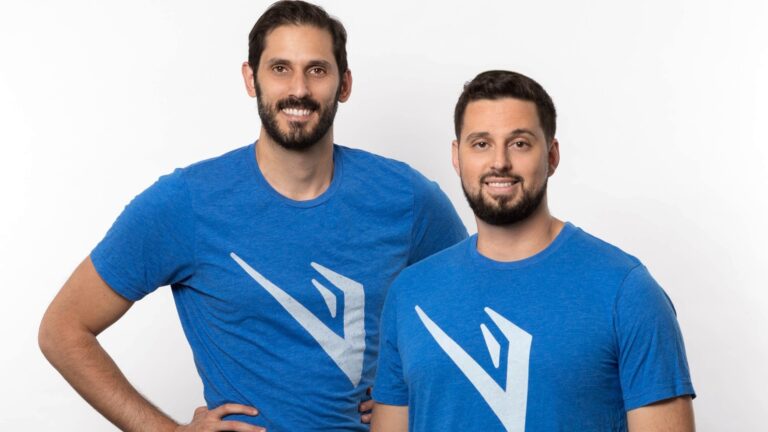In the Israeli tech community, there has been an underlying sense the other shoe was going to drop regarding the end of continued growth.
And now we’ve been hit with a black swan in the form of the coronavirus pandemic, which could plunge the world into a significant economic downturn.
Historically speaking, funding for startups dried up following the dot.com bust, 9/11 and the 2008 recession. Today, many of the most valuable companies are technology companies that were initially venture backed.
But the amount of money invested into high-risk, high-growth startups will ultimately take a hit.
Some see this as an opportunity. After all, some of the world’s most successful companies began during economic downturns.
“Some of the best, most enduring tech innovation comes during survivor mode. I believe that a new wave of innovation will come after this.”
There will always be entrepreneurs with the chutzpah to face uncertainty during times like this, and investors who will back them.
We’re all looking for guidance and insight during this stressful period. Below, several investors based in the US who are active in the Israeli tech space share their insights on where they see things heading.
It’s guaranteed we’ll face some shocks to the economic system, but true to tech and venture, these investors are looking at the upside.
A 6- to 12-month outlook
According to Liron Winberg-Retzkin, general manager of the 365x scaleup program in New York, “Most companies will survive this epidemic crisis and will come out of it even stronger. Some of them will even have fewer competitors. The ones that won’t survive most likely were doomed to fail anyway and this is just a catalyzer.”
She adds that there is money out there waiting to be invested.
“Many funds were raised just recently, so obviously some of it will be saved for follow-up rounds but the rest of it needs to go somewhere. Tech investors such as VCs and angels are risk takers by nature,” Winberg-Retzkin says.
“On a different note, some of the qualities of entrepreneurs are persistence and resilience. They don’t choose the obvious nor the easy path to begin with. They have the qualities to overcome obstacles and for most of them this will just be a bump in the road.”

Maniv Mobility Managing Director Michael Granoff believes that during the next few months “assuming normal life begins to resume in the summer, it will still be a time of retrenchment for tech overall. Many investors will want to gauge the macroeconomic damage before making large new commitments, but at the same time, there is likely to be a rush of pent-up creativity from the founder inspired by such a black-swan event. So, I think for discerning but aggressive investors, there will be opportunities.”
Oliver Mitchell, an investor who has focused heavily in mobility and robotics, states: “I think this period will be a defining moment in world history, whereby we will group events as pre- and post- corona. Likewise, the tech economics in the US and Israel will be affected. We will see a lot of short-term fallout, but the winners will be the companies that adapt quickly and take advantage of new market trends such as remote workflows and automatic practices.”
A view from the Bay Area is also important given that an overwhelming amount of the money in venture comes from that ecosystem.

Oded Hermoni, general partner and cofounder of J Ventures, presented a sobering view.
“In the short term, with funds there will be an almost complete hold on new investments and focus on current portfolio, and startups will try to stretch their runway to 12 to 18 months. This will include layoffs or salary reductions, or both, and employees — if they are not laid off — will have to make some adjustments.
“In six to 12 months, if the corona isolation will be over, the funds will get back to investing, and the terms of rounds will be adjusted – up to 50 percent down. This will happen both in Israel and the US.”
Verticals thriving in the post-coronavirus world
Many of the verticals that investors believe will succeed in a post coronavirus economy seem intuitive regarding where the world is heading.
Verticals including biotech/healthcare, retail/e-commerce, video communication, and education were common. Other verticals mentioned were virtual offices, telehealth, computer vision, agriculture and solutions that focused on supply chains.
However, investor Inbar Haram, managing partner of INcapital Ventures, looked to address this from a different perspective.
“I don’t think it’s a matter of verticals. I believe that companies with strong, agile management, and ability to pivot to new/different business models will win. Companies need to think creatively how to adjust to the new reality and find ways to leverage the resources they have so that they can continue to grow.”
Advice for Israeli founders looking to enter US market: Savlanut!
Entrepreneurs could benefit from this piece of advice from investors who weathered downturns in the past: Wait and see how things develop.
Controversially, some American VCs have urged their startups to capitalize on market conditions now. But generally, Mitchell’s advice (“Be patient and conserve capital; the USA and the world are on pause”) is for the level headed.

Jenny Belotserkovsky, partner and founder of Jemm Ventures, states: “I would recommend to start building relationships with investors or business partners now but enter the market once the worst has subsided. Right now, valuations are 15 to 20% lower for most tech sectors and businesses are waiting out on the uncertainty if not already downsizing/shutting down.”
As they say in Hebrew “savlanut” (patience)!
There may be some opportunities, however, in less impacted verticals.
“Startups which can provide compelling near-term efficiencies, especially in the B2B category, are going to have an easier time getting traction than new consumer offerings in the medium term,” says Granoff.
He believes that businesses will be looking to reduce operating costs and consumers will take a while to regain an appetite for new products.
The silver lining
Optimists tend to be more successful, and what is the narrative of Israel but finding the good in the struggle? No one can accuse these investors of being cynical or pessimistic.

Yasmin Lukatz, founder and executive director of ICON (Israel Collaboration Network) based in the Bay Area believes a positive aspect of this crisis could be “companies getting leaner and more efficient, less competition and less noise, and more remote work.”
Lukatz thinks there will be “a lot of empathy toward parents working full time — understanding the double, even triple workload they have. Crisis breeds innovation. I suspect we’ll see some new, exciting industries that we can’t even imagine yet emerging. Crisis also tends to bring out the best in people.… I hope we can hold on to this spirit far after the virus has died down.”
As Winberg-Retzkin reflects, “Some of the best-known companies in the world were founded during tough economic times. It will force companies to innovate more with less resources.”
It’s not so much about having a rosy outlook; there are real economic ramifications.
Haram believes that “we will see more reasonable valuations that are based on actual revenues and performance. It’s a much-needed correction that we were waiting to see. Prices of companies skyrocketed in the last year and it wasn’t a healthy situation for companies or investors.”
This could usher in a time of unity in both countries as well, according to Hermoni. He believes the positive outcome is “solidarity, understanding that not everyone in the US and Israel is getting the same treatment and should have the approach of joining forces to fight the pandemic across the board.”
A dose of reality
Belotserkovsky has a millennial perspective.
“I think this situation is a dose of reality that many people have not experienced for a long time, if ever. For Israelis who deal with a constant threat to their existence, this time may not be as shocking as for Americans who are used to comfortable living and faintly remember the Great Recession or 9/11.
“Three weeks ago, I could order food delivery online and get it within 30 minutes in San Francisco. Now there are grocery shortages and no available online delivery options. How quickly we went from exuberance of consumption to survivor mode, taking away all the instant gratification and easy access to in person entertainment, active social life, and other basic things we took for granted.
“However, some of the best, most enduring tech innovation comes during survivor mode. I believe that a new wave of innovation will come after this and hopefully focus on deeper, more global problems to solve.”
Post-pandemic world
The world is still trying to make sense of these rapidly changing events. But there are some trends that seem to point to what a post-coronavirus world would look like.
“I don’t think that even this experience will diminish the yearning for human contact, even in the context of business,” says Granoff. “But I do think it will bring a greater recognition of what can realistically be done remotely, as people are relying so heavily on video conferencing in this period. I think Zoom will continue to thrive in the post-COVID era.”
Indeed, all the investors agree that remote working has become the effective “new normal.”
“I think that some of the changes that we’re seeing in the workplace are here to stay,” says Haram.“I believe that companies will develop a new online culture that is respectful of employees’ time and employers will measure actual performance rather than physical presence.”
Winberg-Retzkin sums up with this idea: “I hope what will happen as a result of the pandemic is that more and more businesses will adopt remote work. Startups are already tapping into remote work. I think we have all learned in the past few weeks that if you have a viable Internet connection you can work from anywhere.”
Lukatz sums up with her observation that “we are a generation that will have experienced a pandemic firsthand. This will leave an indelible mark on us. Experiencing something is very different than just reading about it. I think businesses will try to have a bigger cushion, more cash reserves, more solid contingency plans, and more and more of us will be working and meeting from home.
“I think we will see fewer mega networking events and conferences for a while, and it will take some time, if ever, to see even small ceremonious gestures like a handshake or the exchange of a business card, to reemerge. We will find new ways of connecting, both online and in person.”
Jonathan “Yoni” Frenkel heads a digital marketing agency, YKC Media, that focuses on engaging millennial and tech professionals through content. He’s been involved in the New York-Israeli tech community for many years and previously held roles as a nonprofit professional at both the IAC Dor Chadash and AIPAC.















